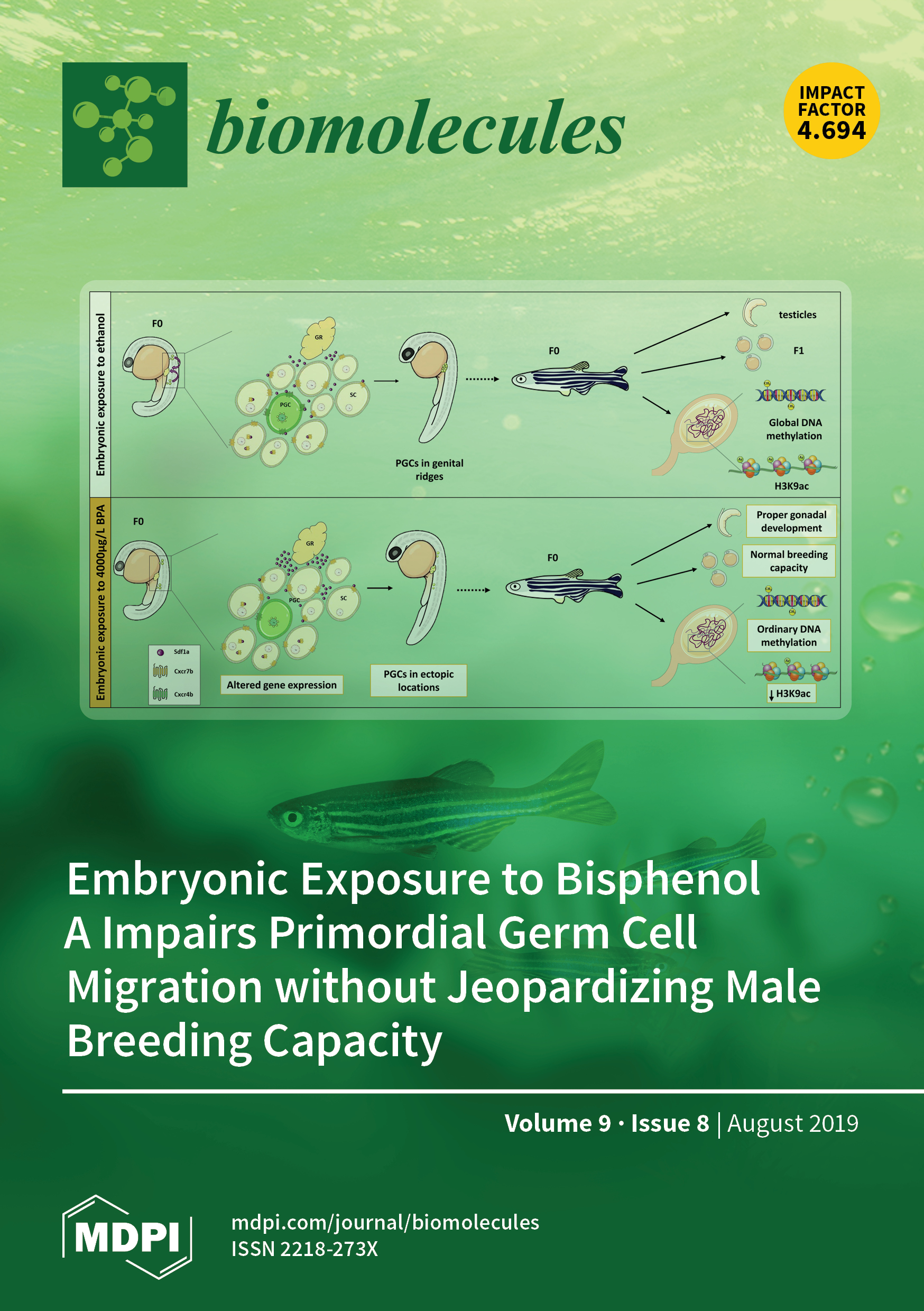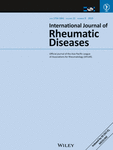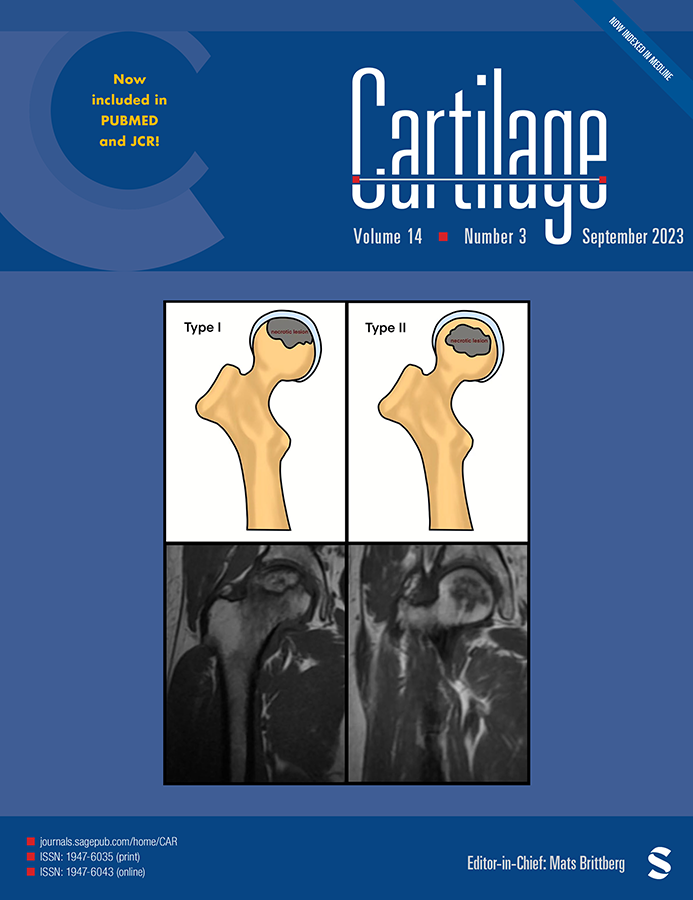Avocado »
Avocado-Soybean Unsaponifiables
How to submit an article:
- Registered users can submit any published journal article that has a unique DOI (Digital Object Identifier) name or link to Research Hub.
- For example, you can paste the full DOI link:
https://doi.org/10.1109/5.771073or just the DOI name:10.1109/5.771073into the field above and click submit. - The person who is first to submit a valid article to Research Hub will forever be credited for it, and every article submission earns you +6 Research Points.
Published research studies are articles that present the findings of original research that has undergone a peer-review process and has been made publicly available in scholarly journals, books or other media.

Composition Analysis and Pharmacological Activity of Avocado/Soybean Unsaponifiable Products Used in the Treatment of Osteoarthritis
2022 Jan 10 Frontiers in Pharmacology Lambert C, Bellemère G, Boyer G, Ponelle F, Bauer T, Legeny MC, et al.
Experimental Study Osteoarthritis Avocado-Soybean UnsaponifiablesPIASCLEDINE-ExpASU®, a type of avocado/soybean unsaponifiable product, displays superior pharmacological activity due to its unique composition, including a high inhibitory effect on pro-inflammatory factors.

Avocado–Soybean Unsaponifiables: A Panoply of Potentialities to Be Exploited
2020 Jan 13 Biomolecules Salehi B, Rescigno A, Dettori T, Calina D, Docea AO, Singh L, et al.
Review Article Menopause Autoimmune Disease Avocado-Soybean UnsaponifiablesAvocado and soybean unsaponifiables may effectively reduce inflammation and symptoms related to osteoarthritis, autoimmune diseases, and menopause.

Efficacy and safety of avocado‐soybean unsaponifiables for the treatment of hip and knee osteoarthritis: A systematic review and meta‐analysis of randomized placebo‐controlled trials
2019 Jul 22 International Journal of Rheumatic Diseases Simental‐Mendía M, Sánchez‐García A, Acosta‐Olivo CA, Vilchez‐Cavazos F, Osuna‐Garate J, Peña‐Martínez VM, et al.
Systematic Review Meta-Analysis Avocado Knee OsteoarthritisAvocado-soybean unsaponifiables treatment is effective in reducing knee osteoarthritis symptoms without increasing adverse events, contrary to those with hip osteoarthritis.

Management of Osteoarthritis with Avocado/Soybean Unsaponifiables
2014 Oct 29 CARTILAGE Christiansen BA, Bhatti S, Goudarzi R, Emami S
Review Article Avocado Avocado-Soybean Unsaponifiables Articular CartilageA dietary supplement Avocado/Soybean Unsaponifiables aids in treating Osteoarthritis by preventing cartilage degradation and promoting cartilage repair, thereby reducing pain and enhancing joint functionality.
Research insights are moderated by the Research Hub team and offer an at-a-glance overview of interesting research findings.

2022 Frontiers in Pharmacology
PIASCLEDINE-ExpASU®, a type of avocado/soybean unsaponifiable product, displays superior pharmacological activity due to its unique composition, including a high inhibitory effect on pro-inflammatory factors.
Experimental Study Osteoarthritis
Composition Analysis and Pharmacological Activity of Avocado/Soybean Unsaponifiable Products Used in the Treatment of Osteoarthritis
Lambert C, Bellemère G, Boyer G, Ponelle F, Bauer T, Legeny MC, et al.

2020 Biomolecules
Avocado and soybean unsaponifiables may effectively reduce inflammation and symptoms related to osteoarthritis, autoimmune diseases, and menopause.
Review Article Autoimmune Disease Menopause
Avocado–Soybean Unsaponifiables: A Panoply of Potentialities to Be Exploited
Salehi B, Rescigno A, Dettori T, Calina D, Docea AO, Singh L, et al.

2019 International Journal of Rheumatic Diseases
Avocado-soybean unsaponifiables treatment is effective in reducing knee osteoarthritis symptoms without increasing adverse events, contrary to those with hip osteoarthritis.
Systematic Review Avocado Knee Osteoarthritis
Efficacy and safety of avocado‐soybean unsaponifiables for the treatment of hip and knee osteoarthritis: A systematic review and meta‐analysis of randomized placebo‐controlled trials
Simental‐Mendía M, Sánchez‐García A, Acosta‐Olivo CA, Vilchez‐Cavazos F, Osuna‐Garate J, Peña‐Martínez VM, et al.

2014 CARTILAGE
A dietary supplement Avocado/Soybean Unsaponifiables aids in treating Osteoarthritis by preventing cartilage degradation and promoting cartilage repair, thereby reducing pain and enhancing joint functionality.
Review Article Articular Cartilage Avocado
Management of Osteoarthritis with Avocado/Soybean Unsaponifiables
Christiansen BA, Bhatti S, Goudarzi R, Emami S
Review Articles
Review articles summarise and critically evaluate the current state of research on a specific topic or field by synthesising multiple primary research studies.

Avocado–Soybean Unsaponifiables: A Panoply of Potentialities to Be Exploited
2020 Jan 13 Biomolecules Salehi B, Rescigno A, Dettori T, Calina D, Docea AO, Singh L, et al.
Review Article Menopause Autoimmune Disease Avocado-Soybean UnsaponifiablesAvocado and soybean unsaponifiables may effectively reduce inflammation and symptoms related to osteoarthritis, autoimmune diseases, and menopause.

Efficacy and safety of avocado‐soybean unsaponifiables for the treatment of hip and knee osteoarthritis: A systematic review and meta‐analysis of randomized placebo‐controlled trials
2019 Jul 22 International Journal of Rheumatic Diseases Simental‐Mendía M, Sánchez‐García A, Acosta‐Olivo CA, Vilchez‐Cavazos F, Osuna‐Garate J, Peña‐Martínez VM, et al.
Systematic Review Meta-Analysis Avocado Knee OsteoarthritisAvocado-soybean unsaponifiables treatment is effective in reducing knee osteoarthritis symptoms without increasing adverse events, contrary to those with hip osteoarthritis.

Management of Osteoarthritis with Avocado/Soybean Unsaponifiables
2014 Oct 29 CARTILAGE Christiansen BA, Bhatti S, Goudarzi R, Emami S
Review Article Avocado Avocado-Soybean Unsaponifiables Articular CartilageA dietary supplement Avocado/Soybean Unsaponifiables aids in treating Osteoarthritis by preventing cartilage degradation and promoting cartilage repair, thereby reducing pain and enhancing joint functionality.
Clinical Trials
Clinical trials are research studies that involve people and are conducted to evaluate the safety and efficacy of new treatments or interventions, such as drugs, medical devices, or behavioural therapies.
Study Protocols
Published study protocols are detailed plans that outline the objectives, methodology, statistical analyses, and organisation of a research study that have been made publicly available for others to review and use as a reference.
Presentation Slides

Experimental Study
PIASCLEDINE-ExpASU®, a type of avocado/soybean unsaponifiable product, displays superior pharmacological activity due to its unique composition, including a high inhibitory effect on pro-inflammatory factors.
Lambert C, Bellemère G, Boyer G, Ponelle F, Bauer T, Legeny MC, Baudouin C, Henrotin Y

Review Article
Avocado and soybean unsaponifiables may effectively reduce inflammation and symptoms related to osteoarthritis, autoimmune diseases, and menopause.
Salehi B, Rescigno A, Dettori T, Calina D, Docea AO, Singh L, Cebeci F, Özçelik B, Bhia M, Dowlati Beirami A, Sharifi-Rad J, Sharopov F, C. Cho W, Martins N

Systematic Review
Avocado-soybean unsaponifiables treatment is effective in reducing knee osteoarthritis symptoms without increasing adverse events, contrary to those with hip osteoarthritis.
Simental‐Mendía M, Sánchez‐García A, Acosta‐Olivo CA, Vilchez‐Cavazos F, Osuna‐Garate J, Peña‐Martínez VM, Simental‐Mendía LE

Review Article
A dietary supplement Avocado/Soybean Unsaponifiables aids in treating Osteoarthritis by preventing cartilage degradation and promoting cartilage repair, thereby reducing pain and enhancing joint functionality.
Christiansen BA, Bhatti S, Goudarzi R, Emami S
Executive Summary
Write an executive summary in the form of a blog article on the topic of "Research into Chinese medicine treatment for Avocado-Soybean Unsaponifiables" summarising the research below and using language that can be easily understood by patients and avoiding medical jargon using a professional and caring tone of voice.
Write an executive summary in the form of a blog article on the topic of "Researched Chinese medicine treatments for Avocado-Soybean Unsaponifiables" summarising the research below in an objective and easy to understand way, and using language that can be easily understood by patients. Group the article into Chinese medicine treatments first, followed by nutrition and other treatments. Avoid using medical jargon and use a professional and caring tone of voice.
Write me a concise but easy to understand executive summary on the topic of "Chinese medicine treatments for Avocado-Soybean Unsaponifiables" based on the following research that I will give you. Your summary should be 2 paragraphs long in Australian English spelling and include references to the studies.
A Experimental Study published in 2022 in the journal Frontiers in Pharmacology found that PIASCLEDINE-ExpASU®, a type of avocado/soybean unsaponifiable product, displays superior pharmacological activity due to its unique composition, including a high inhibitory effect on pro-inflammatory factors. The study began with the characterisation of the lipid content of seven different avocado/soybean unsaponifiable (ASU) products through gas chromatography analysis performed on a VARIAN 3400 chromatograph. In parallel, the effects of these products were tested on human osteoarthritis chondrocytes (cartilage cells) cultured in alginate beads. The researchers focused on the effects of these ASU products on aggrecan, key interleukins, and matrix metalloproteases. In terms of results, PIASCLEDINE-ExpASU® stood out due to a specific profile involving unique chromatographic peaks and the presence of specific compounds like alkyl furan fraction, alkyl triols, and squalene. Remarkably, this product showed heightened efficacy in inhibiting production of nitric oxide, interleukins, and catabolic factors. Meanwhile, excepting two products, the remaining ASUs showed varied capacity in increasing aggrecan production, a positive factor in the context of osteoarthritis treatment.
A Review Article published in 2020 in the journal Biomolecules found that Avocado and soybean unsaponifiables may effectively reduce inflammation and symptoms related to osteoarthritis, autoimmune diseases, and menopause. The research involves summarizing various studies on the biological effects of the avocado-soybean unsaponifiables (ASU), highlighting its potent anti-inflammatory properties. The extracted ASU are a combination of elements derived from the fruits and seeds of avocados and soybeans. To understand its impact, the researchers categorized the applications of ASU in treating different conditions such as osteoarthritic pain, hip and knee osteoarthritis, autoimmune diseases, and menopause-related symptoms amongst postmenopausal women. The discussion revealed significant links between avocado and soybean unsaponifiables and symptom improvement in areas of osteoarthritic pain, autoimmune conditions, and postmenopause. Particularly notable is the ASU mixture's potential role as an adjunct treatment, meaning it’s meant to supplement primary treatments for such conditions. Its benefits were not only limited to physical reduction of inflammation and associated pain, but also improved mood and quality of life for postmenopausal women by significantly reducing menopause-related symptoms. The study also delves into the safety, toxicological considerations, and regulatory practices related to the use of ASU.
A Systematic Review published in 2019 in the journal International Journal of Rheumatic Diseases found that Avocado-soybean unsaponifiables treatment is effective in reducing knee osteoarthritis symptoms without increasing adverse events, contrary to those with hip osteoarthritis. To assess avocado-soybean unsaponifiables (ASU) effectiveness and safety, a systematic review and meta-analysis of randomized controlled trials involving patients with hip or knee osteoarthritis was conducted. Various scientific databases, including Medline, SCOPUS, Web of Science, and Google Scholar, were thoroughly searched for suitable trials. Selection criteria consisted of randomized placebo-controlled trials wherein the effect of orally administered ASU on knee or hip osteoarthritis symptoms were evaluated, primarily using the Lequesne index, visual analog scale, and joint space width. The meta-analysis revealed a significant reduction in pain as assessed by the visual analog scale for those under Avocado-soybean unsaponifiables therapy, particularly for patients with knee osteoarthritis, indicated by a decrease in both the visual analogue scale and Lequesne index. However, no such significant effect was found for patients with hip osteoarthritis. In terms of safety, there were no significant differences in adverse events between patients receiving ASU and those given a placebo, confirming ASU's relative safety as a treatment option.
A Review Article published in 2014 in the journal CARTILAGE found that A dietary supplement Avocado/Soybean Unsaponifiables aids in treating Osteoarthritis by preventing cartilage degradation and promoting cartilage repair, thereby reducing pain and enhancing joint functionality. Avocado/Soybean Unsaponifiables was studied for its effects on Osteoarthritis. The methodology highlighted its functions, which include inhibiting the release and activity of molecules and pathways that are implicated in OA, as well as those that prevent cartilage degradation. These functions are principally through the prohibition of matrix metalloproteinases and the increase of tissue inhibitors of the catabolic enzymes in question. Additionally, ASU was found to inhibit fibrinolysis by stimulating the expression of plasminogen activator inhibitor. Moreover, its anabolic properties were credited with promoting cartilage repair by stimulating collagen and aggrecan synthesis while inhibiting inflammatory cytokines. ASU's chondroprotective effects were noted as well; these effects are brought about by correcting growth factor abnormalities, and by simultaneously increasing Transforming Growth Factor-Beta in synovial fluid while decreasing vascular endothelial growth factor. Additionally, it was observed to inhibit cholesterol absorption and biosynthesis, which further contribute to its beneficial role by moderating reactive oxygen species pathology in chondrocytes. Results indicated that the dietary supplement has significant therapeutic value for those suffering from Osteoarthritis. It reduces pain and stiffness while improving joint function, resulting in less dependency on painkillers. It was found that ASU's preventative measures towards cartilage degradation and its promotion of cartilage repair play essential roles in its efficiency as a treatment for OA.
Moderation Tools
Topic
Sign In
Users not signed in are limited to viewing the 5 most recent items of content.